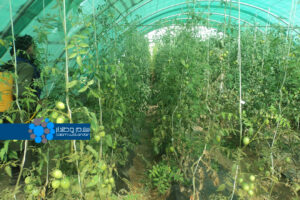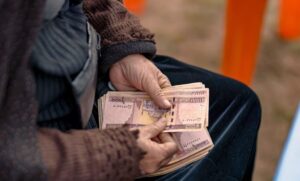QALA-E NAW CITY (SW) – In Badghis, a province in northwestern Afghanistan, many women face significant health issues due to a lack of awareness about menstrual hygiene.
Some women in Badghis, primarily rural residents, share with Salam Watandar their struggles with health problems stemming from inadequate menstrual hygiene practices.
Menstruation, also known as “period” or “menstrual cycle” – is the monthly shedding of the uterine lining in young women – often referred to as a taboo matter in Afghanistan, remains shrouded in secrecy and is considered shameful to discuss openly.
Sabera, seeking treatment for her ailments from a female healthcare provider in Qala-e-Naw, the central of Badghis, recounts experiencing back pain, pelvic discomfort, urinary issues, abdominal pain, and menstrual stop-related problems.
Sabera acknowledges that her lack of awareness about menstrual hygiene contributed to her condition. She said, “I didn’t know what to do; I used pieces of cloth, feeling embarrassed and ashamed to expose them to sunlight, fearing men would see them. During postpartum, I didn’t have access to sanitary pads or knowledge about their use.”
Another woman, Azar, visiting a female healthcare provider, attributes her infertility to ovarian cysts, one of the consequences of poor hygiene practices. She voices her dilemma, “I use cloth pieces, but now that I’m in pain, I don’t know what to do. The pieces are mostly plastic and only washed with water.”
However, some girls in Badghis, with relative awareness about menstrual hygiene, express concerns that most girls in the province endanger their lives due to their lack of knowledge.
Nazgul Ebrahimzada, a local girl, shares, “One of my relatives uses cloth during menstruation, and when I asked why she doesn’t use sanitary pads, she said sanitary pads are imported and may contain harmful substances in the future.”
Likewise, Latifa Sharifi, another girl, emphasizes the responsibility of health organizations, particularly the Ministry of Public Health, in educating women about menstrual hygiene. “All girls and women should properly consider essential hygiene practices during menstruation and the postpartum period, known as ‘nifas’,” She added.
Midwives stress the importance of women’s awareness of menstrual hygiene and highlight misconceptions prevalent in the community, such as refraining from bathing, not using sanitary pads, and neglecting healthy nutrition during menstruation, all contributing factors to women’s health problems.
Layeqa Armani, a midwife, advises, “If women use cloth, they should wash and iron them, expose them to sunlight to kill bacteria, and pay close attention to hygiene. During menstruation, women are advised to wear cotton or linen undergarments.”
Another midwife, Obaida Sulaimani, warns, “If hygiene precautions are not taken during menstruation, blood may re-enter the uterus and clot, leading to infertility.”
According to United Nations statistics, 50% of girls in Afghanistan experience menstruation for the first time without knowledge about it. 70% of these girls believe they should not bathe during menstruation, and 12% lack access to hygiene products.





